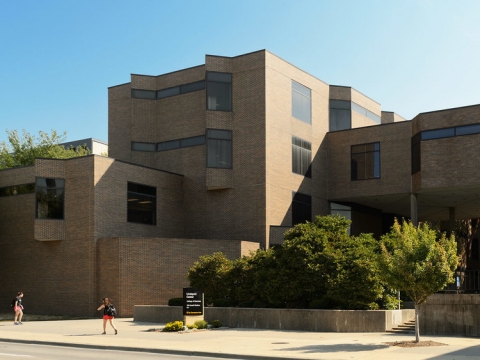DeLTA Center Roundtable - Kyle Rector (University of Iowa)

Kyle Rector, Assistant Professor in the Department of Computer Science, will discuss her research with the DeLTA Center.
Professor Rector has research interests in Human-Computer Interaction and Accessibility. More specifically, she is interested in developing Eyes-Free Technologies that enhance quality of life, including exercise and art technologies for people who are blind or low vision. She is a Google PhD Fellow (2015), an NSF Graduate Research Fellow (2012-2015), a Google Anita Borg Scholar (2010), and a Palantir Scholarship for Women in Technology Semi-Finalist (2013). Her research has been recently covered by MIT Technology Review, Microsoft, Gizmag, GeekWire, and c|net. Kyle received her BS from Electrical & Computer Engineering and Computer Science from Oregon State University (2010) and her MS and PhD from the Department of Computer Science and Engineering at the University of Washington, co-advised by Julie Kientz and Richard Ladner (2016).
Enhancing Quality of Life for People who are Blind or Low Vision Using Computing Technology
Abstract:
Activities such as exercise and participating in the community enhance quality of life, but they are often not accessible to people who are blind or low vision. For example, people who are visually impaired are more likely to be obese, less likely to attend art museums, and less likely to be employed than people who are sighted. The goal of my research is to design, develop, and evaluate systems that enhance the quality of life for people who are blind or low vision.
In this talk, I will first describe a project with in-depth interviews and surveys that inform the design of future eyes-free exercise technologies. I will then describe a solution that I designed and developed called Eyes-Free Yoga, which is an accessible yoga exergame that provides auditory instructions and feedback. Next I will describe the design and evaluation of Eyes-Free Art, an audio proxemic interface to help explore 2D paintings. Finally, I will discuss the opportunities for developing technologies to enhance quality of life for people who are blind or low vision including exercise in the wild, working with children, and improving experiences with art and community.
+ Coffee, water, and pastries will be provided
